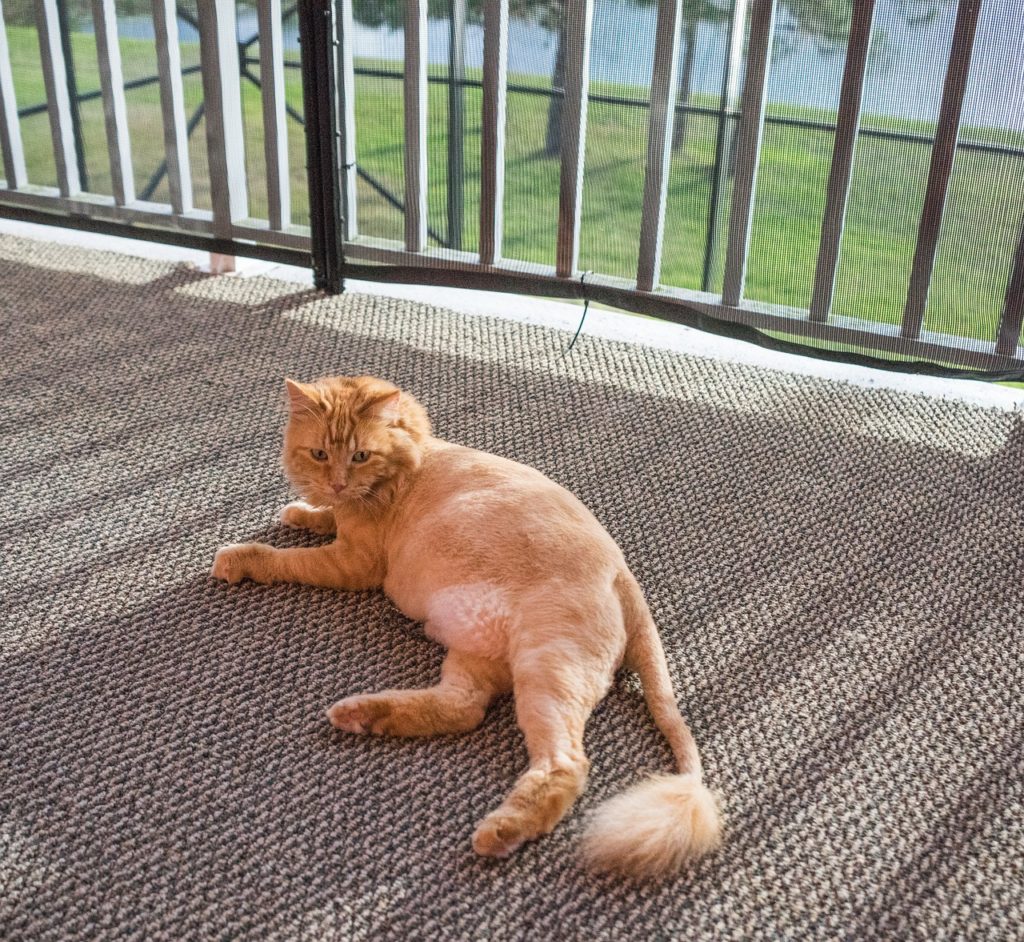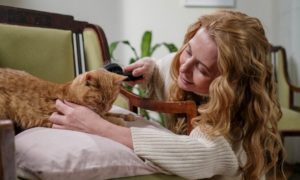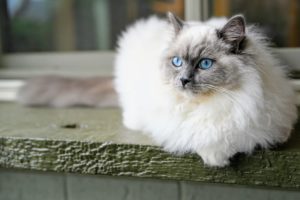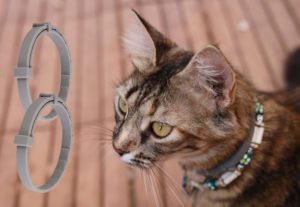A lion cut is a grooming style that involves trimming the cat’s fur to resemble a lion’s. The hair on the cat’s body is trimmed short, while the hair on the head, neck, and tail is left long. The legs may be trimmed midway down, leaving the lower legs looking like fluffy boots. The lion cut is popular among pet owners because it can help remove matted fur and reduce hairballs. It can also help cats with extended hair stay cool during hot weather.
What are the benefits of a lion cut for cats?

Giving your cat a lion cut can provide various benefits, such as:
- Removes matted fur: Clipping is often the best and safest way to remove tangles if your cat’s coat is tangled. Mats and tangles can irritate your cat, rub against them, and damage their skin; therefore, these must be removed.
- Reduces hairballs: When grooming your cat, removing most of their long hair can decrease the amount of hair they ingest. Hairballs are more than just an annoyance; They can harm the digestive system, and some veterinarians recommend trimming your pet’s fur if the pet is prone to repetitive hairball issues.
- Low maintenance: The lion cut is an excellent solution for those who dislike combing and brushing their cats, as it is easy to maintain between grooming appointments.
- Easier for senior cats to groom: As they age, they may experience stiffness and reduced flexibility, making it difficult to groom themselves adequately. Giving them a short trim can help them maintain a neat appearance during their senior years.
- Less shedding: With a lion cut, your cat has less hair. Therefore, there will be less shedding and less hair in your house.
How long does a lion cut last on a cat?
The duration of a lion cut on a cat depends on how fast its hair grows back. After shaving, a cat’s hair usually takes about 2-3 months to regrow completely. However, this time frame may vary depending on breed, age, diet, and overall health.
How will my cat behave after a lion cut?
After getting a lion cut, your cat may feel cold or exposed without its full fur coat. It may also feel lighter and more agile. Some cats may become more playful or active after getting groomed.
How do you take care of a cat after a lion cut?
After getting a lion cut, you should take care of your cat by:
- Keeping it warm: Since your cat’s coat has been trimmed short, it may feel cold or exposed without its full fur coat. You can keep your cat warm by providing it with blankets or sweaters.
- Protecting it from sunburn: Clipping the hair very short exposes the skin to ultraviolet rays from sunlight. You can save your cat from sunburn by keeping it indoors during peak sunlight hours or applying pet-safe sunscreen.
- Preventing matting: To prevent matting from occurring again after grooming, you should brush your cat regularly. Regularly using this tool will assist in getting rid of any loose hair and prevent any potential tangles from forming.
- Monitoring its behavior: Some cats may become more playful or active after grooming. However, if you notice any unusual behavior or symptoms, such as lethargy or loss of appetite, you should contact your veterinarian immediately.
How much does it cost to give your cat a lion cut?
The cost of giving your cat a lion cut varies depending on location and groomer experience. On average, you can expect to pay anywhere from $50-$150 for this service.
Conclusion
Before giving your cat a lion cut, it’s important to consider their overall health, well-being, and temperament. If your cat has matted fur or needs to stay cooler in hot weather, a lion cut may be a good option for them.
However, if your cat is prone to stress or has sensitive skin, it’s better to explore other grooming options. It’s always advisable to seek advice from a professional groomer or your veterinarian for personalized recommendations on the best grooming approach for your cat.
With a passion for cats and years of experience in cat care and grooming, I have gained valuable insights and expertise that I want to share with other cat lovers. I believe that every cat deserves the best care possible, and through this platform, I aim to empower cat owners like you to provide the utmost love and care for your feline companions.



